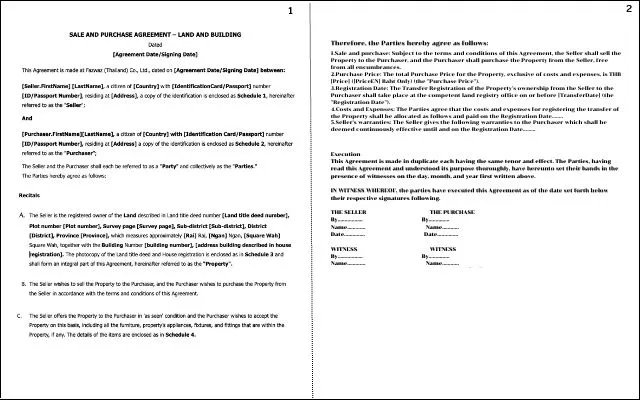- List your property - it's free
- Sign up or Log in
-
English- en
-
THB - ฿
- Buy
- Thailand Property For Sale
- Thailand Real Estate
- See Newest Listings
- Why Buy with FazWaz
- Rent
- Sell
- Projects
- Advice
- Property Management
- Vacation Rental Management

To sell your property profitably, negotiating the best possible price is crucial. The process is complex and involves many parties, legal documents, and financial considerations. You must have a well-planned approach to get the best price for your property. This guide provides tips and also strategies for negotiating the best price, including preparing for negotiations, managing the process, including closing the deal. Following these tips increases your chances of getting the best possible price for your property.
To negotiate the best price for your real estate property, you need to prepare yourself adequately. Here are some essential steps to consider before entering into negotiations:
By taking the time to prepare adequately before negotiations, you can increase your chances of achieving a successful outcome. Researching the market and your property's value, addressing any issues, and determining the lowest acceptable price will give you the confidence and knowledge to negotiate effectively.
Negotiating the sale of your real estate property can be a stressful process, but it doesn't have to be. Here are some tips to help you navigate the negotiation process successfully:
By following these tips, you can navigate the negotiation process with confidence and increase your chances of achieving a successful outcome. Establishing rapport with the buyer's agent, keeping emotions in check, being willing to compromise, avoiding revealing too much information, and also being aware of common negotiating tactics can all help you negotiate effectively.

Closing the deal on the sale of your real estate property is the final stage of the negotiation process. Here are some important steps to consider during this phase:
Trading Agreement Sample Contract

By following these steps, you can ensure a successful closing on the sale of your real estate property. Understanding the importance of a well-written contract, reviewing and negotiating contract terms, being aware of potential contingencies, and having a backup plan can all help you close the deal with confidence.
Selling property can be a challenging process, but with careful preparation, effective negotiation skills, and a clear understanding of the process, you can get the best price during negotiations and successfully close the deal. If you find the process overwhelming or need help, don't hesitate to seek the assistance of a Fazwaz professional real estate agent. They can provide valuable insights including guidance to ensure a successful transaction.